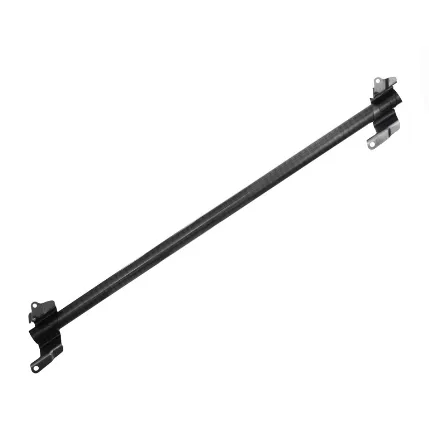
Understanding Heavy Truck Parts The Backbone of the Transport Industry
Heavy trucks are an essential component of the transportation industry, responsible for the movement of goods across vast distances. The durability and efficiency of these vehicles rely heavily on their parts. In this article, we will explore the crucial components of heavy truck parts and highlight why their maintenance and quality are vital for operational success.
1. Engine Components
At the heart of any heavy truck lies its engine. This powerhouse is made up of various parts, including the cylinder block, pistons, crankshaft, and camshaft. Each of these components plays a critical role in the engine's performance. The cylinder block houses the cylinders where fuel and air mix to create power, while the pistons convert this energy into mechanical movement. Regular maintenance of these parts is vital, as any wear and tear can significantly impact the truck's performance and fuel efficiency.
2. Drivetrain Assemblies
The drivetrain is responsible for transferring power from the engine to the wheels. Key components include the transmission, driveshaft, and axles. The transmission controls the speed and torque of the vehicle, whereas the driveshaft transmits that power to the wheels. Axles bear the weight of the truck and its cargo. Ensuring that these parts are functioning correctly is essential for a smooth driving experience and can prevent costly breakdowns.
Heavy trucks face numerous challenges on the road, including rough terrains and heavy loads. A robust suspension system, comprising shock absorbers, springs, and control arms, ensures that the truck maintains stability and comfort when driving. A well-maintained suspension system not only enhances the vehicle's performance but also prolongs the lifespan of other parts by absorbing shocks.

4. Braking Systems
The safety of heavy trucks heavily relies on their braking systems. Key components include the brake pads, rotors, calipers, and air brake system. As heavy trucks carry substantial loads, they require more powerful and reliable braking systems. Regular inspection and maintenance are essential to ensure that all parts are functioning optimally, reducing the risk of accidents on the road.
5. Electrical Systems
Modern heavy trucks are equipped with advanced electrical systems that control various functions, from starting the engine to powering auxiliary equipment. Key components include batteries, alternators, and wiring harnesses. Any malfunction in the electrical system can lead to operational failures, making regular inspections crucial for uninterrupted service.
6. Importance of Quality Parts
When it comes to heavy truck parts, quality cannot be compromised. Using substandard or counterfeit parts can lead to significant safety risks and costly repairs. It’s essential for fleet operators to source genuine parts from reputable suppliers, ensuring that they meet industry standards and specifications.
Conclusion
In conclusion, heavy truck parts are the backbone of the transportation industry, playing a vital role in ensuring the smooth operation of these vehicles. From the engine to the braking system, each component is crucial for performance, safety, and longevity. Regular maintenance and investment in quality parts can save fleet operators from extensive downtimes and enhance their overall operational efficiency. Understanding these parts and their functions is essential for anyone involved in the heavy trucking business. By prioritizing the care and quality of heavy truck parts, operators can ensure that their vehicles remain reliable and efficient on the road.